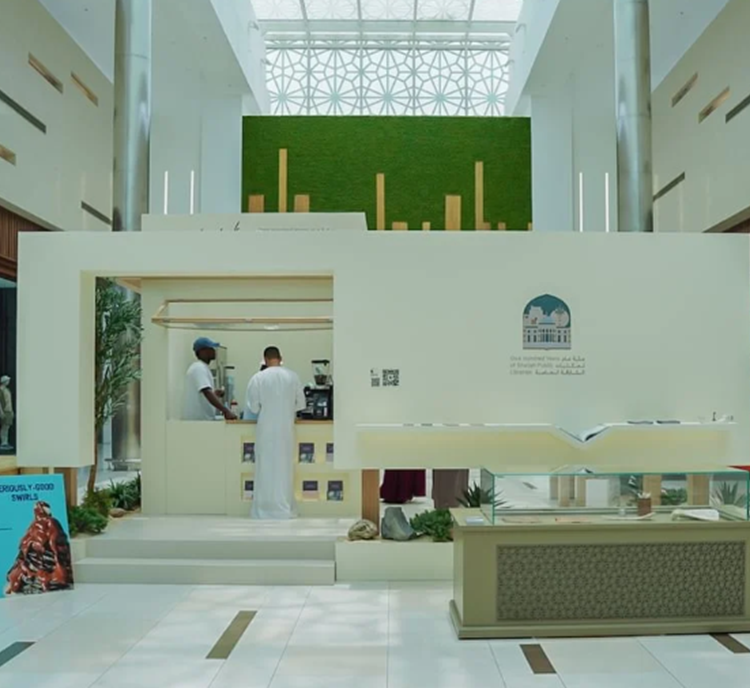Sharjah Public Libraries launch exhibition on Arabic script evolution
 Date: - Jul 14, 2025
Date: - Jul 14, 2025 
As part of its centennial celebrations, Sharjah Public Libraries (SPL) has launched an engaging exhibition titled ‘The History of Letters and Movement’, currently on display at Al Rahmaniyah Mall until 20 July.
The exhibition is held in collaboration with the Holy Quran Academy in Sharjah and traces the evolution of Arabic script over 14 centuries — from early abstract forms to one of the most expressive writing systems in the world.
Open daily from 10am to 10pm, the exhibition offers a deep dive into the milestones that have shaped Arabic writing, highlighting key developments such as the introduction of diacritical marks, refinement of calligraphic styles, and the script’s elevation through its use in the Holy Quran.
These transformations turned Arabic script into both a medium for knowledge transmission and a form of artistic expression, preserving cultural identity across generations.
The Quran’s role in refining script
The exhibition underscores the pivotal role of the Holy Quran in standardising and enhancing the Arabic language. Through its linguistic precision and aesthetic excellence, the Quran has significantly influenced the tools of writing and pronunciation, helping Arabic evolve into a comprehensive and eloquent language.
Rare manuscripts and artefacts from the Holy Quran Academy’s collection are on display, showcasing the artistic diversity of Arabic calligraphy. These exhibits reveal how the written word has preserved heritage and served as a mirror of societal and intellectual shifts in the Arab and Islamic worlds.
Celebrating a rich cultural legacy
Eman Bushulaibi, Director of SPL, said: “The exhibition is part of SPL’s ongoing efforts to introduce the public to the rich artistic and cultural heritage embedded in Arabic writing. The development of Arabic script reflects a cultural movement that played a key role in the intellectual and scientific renaissance of the Arab and Islamic world.”
She added that despite the limited tools available to early scribes — just reed pens and inkwells — they succeeded in creating a legacy of knowledge that continues to inspire.
“We hope visitors will reflect on this enduring power of writing and its vital role in preserving identity and sharing ideas across generations.”
SPL encourages residents and visitors of all ages to explore the journey of the Arabic letter, from stone inscriptions to printed books, in this unique celebration of a living linguistic heritage.



